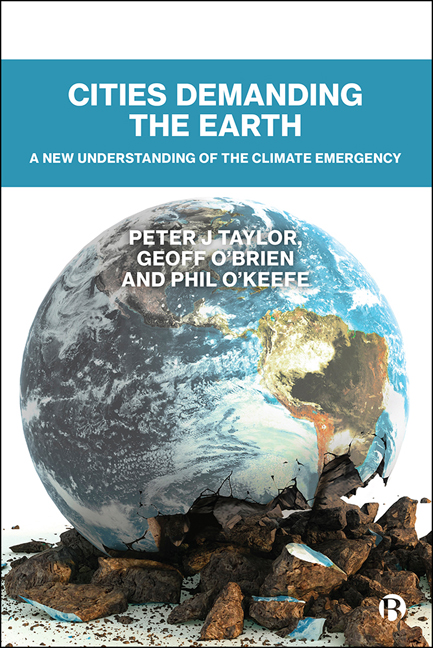Book contents
- Frontmatter
- Dedication
- Contents
- List of Tables and Figures
- About the Authors
- Preface
- 1 Declarations: Root and Branch Unthinking
- 2 Alternate: Jane Jacobs’ legacy
- 3 Inside Out: Fourteen Antitheses Authenticating Cities
- 4 Reset: Anthropogenic Climate Change is Urban, not Modern
- 5 Action: Can We Stop Terminal Consumption?
- References
- Appendix: Primer on Climate Change Policy
- Index
2 - Alternate: Jane Jacobs’ legacy
Published online by Cambridge University Press: 19 March 2021
- Frontmatter
- Dedication
- Contents
- List of Tables and Figures
- About the Authors
- Preface
- 1 Declarations: Root and Branch Unthinking
- 2 Alternate: Jane Jacobs’ legacy
- 3 Inside Out: Fourteen Antitheses Authenticating Cities
- 4 Reset: Anthropogenic Climate Change is Urban, not Modern
- 5 Action: Can We Stop Terminal Consumption?
- References
- Appendix: Primer on Climate Change Policy
- Index
Summary
Introduction: Jane Jacobs beyond urban celebrity
Zipp and Storring (2016b: xvii–xviii) have made a powerful case for revisiting Jane Jacobs’ rich intellectual legacy:
There's no doubt … that this is just the right time for “more Jane Jacobs” … to reimagine Jacobs herself as more than a symbol of urban sorrow or urban triumph. Always idiosyncratic and unorthodox, often to risk being wrong if it means reorienting stale conventional wisdom, she pushes beyond the familiar alarms to see urban transformation as a source of radical possibility and opportunity.… Jacobs was perhaps our greatest theorist of the city not as a modern machine for living but as a human system, geared for solving its own problems.
The description of her as ‘greatest theorist of the city’ is probably derived from a Planetizen survey (Planetizen is a US urban planning news website) in 2009, where Jacobs was ranked first among the ‘Top 100 Urban Thinkers’ by a readers’ poll (Goldsmith and Lynne, 2010: xxiv). A similar survey from the same source in 2017 again ranked her first, this time as ‘The Most Influential Urbanist’ of all time (see www. planetizen.com/features/95189-100-most-influential-urbanists). The accompanying citation refers to two aspects of her work: the book The Death and Life of Great American Cities (Jacobs, 1961) and her battle with Robert Moses over New York planning issues in the 1950s and 1960s. This surely represents her prime legacy (Hirt, 2012a). Still in print today and always mentioned on the front cover of all her subsequent books, Death and Life catapulted Jacobs into literary stardom as an authority of things urban: the book is credited with igniting paradigmatic change in the theory and practice of city planning.
But Jacobs’ reputation rests on much more than her writing. She was a protestor and activist, defender of communities and advocate of civil disobedience. Her successful struggles to stop Moses physically destroying communities complemented her book and have become the stuff of legends, a modern David and Goliath story (Flint, 2009; Lang and Wunsch, 2009), even making its way onto the silver screen – see Altimeter Films’ Citizen Jane: Battle for the City.
- Type
- Chapter
- Information
- Cities Demanding the EarthA New Understanding of the Climate Emergency, pp. 17 - 44Publisher: Bristol University PressPrint publication year: 2020



